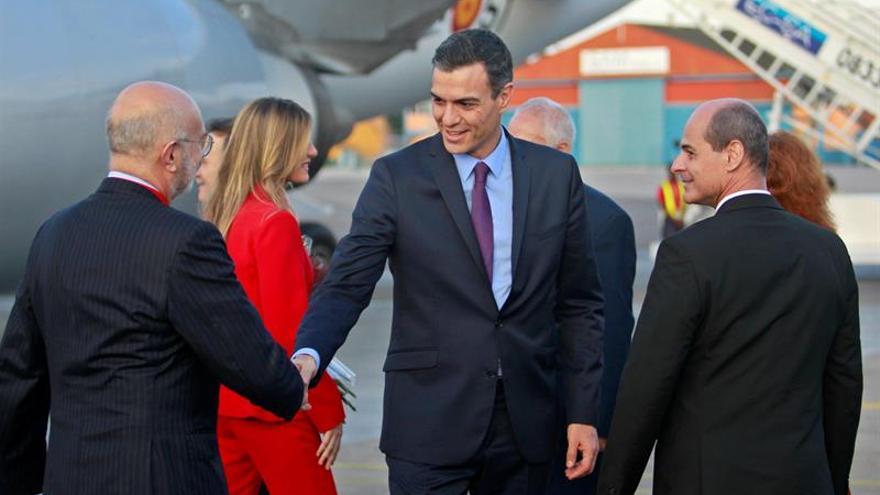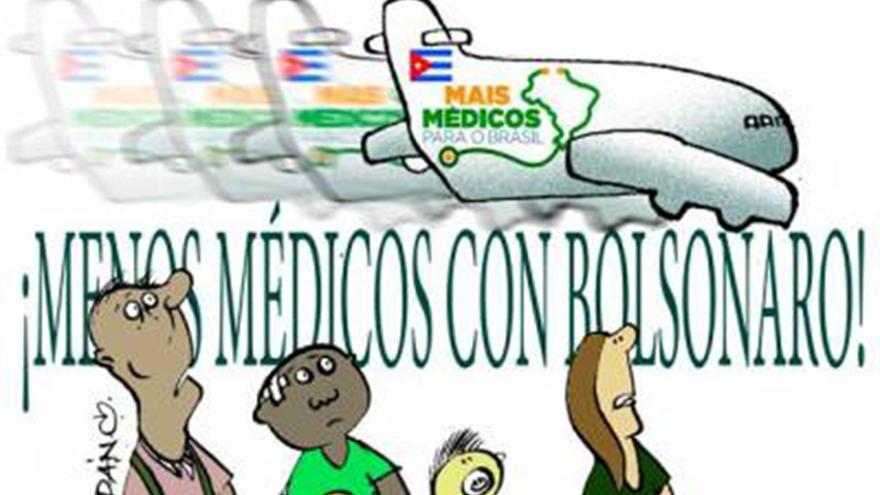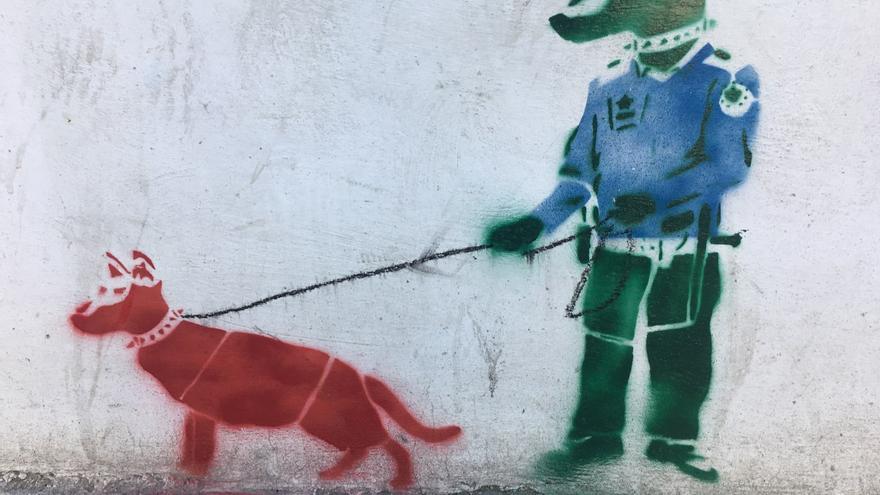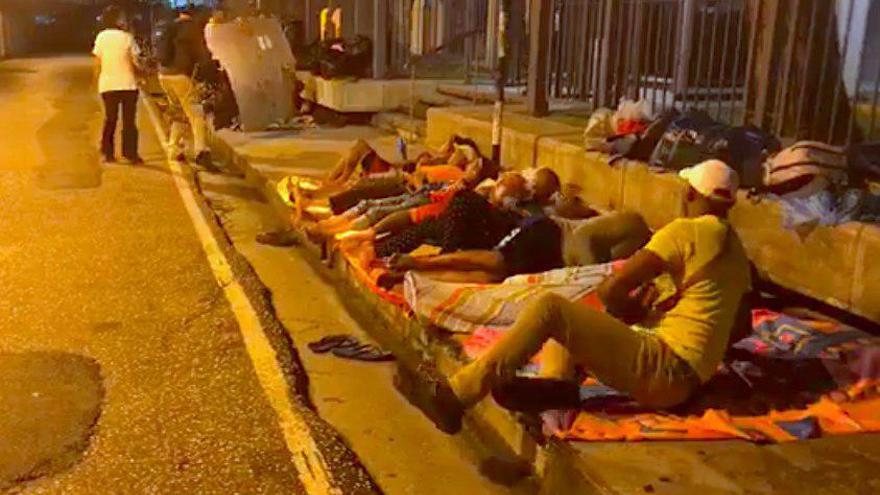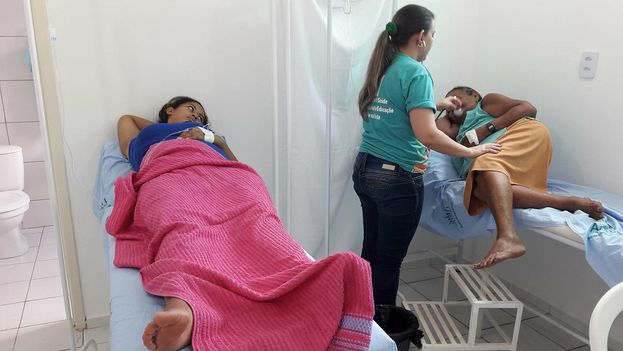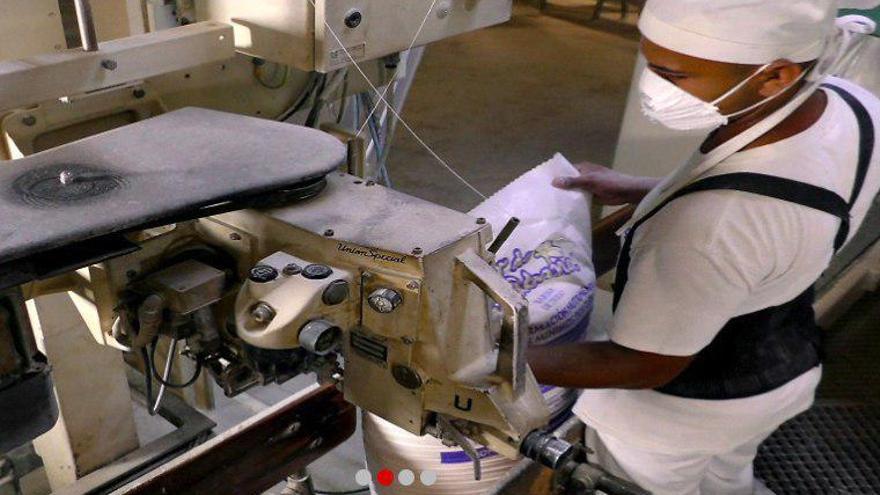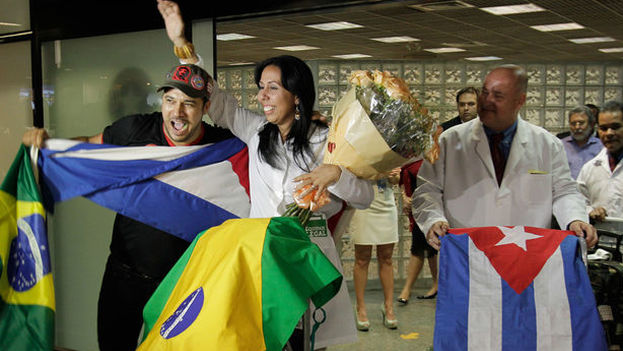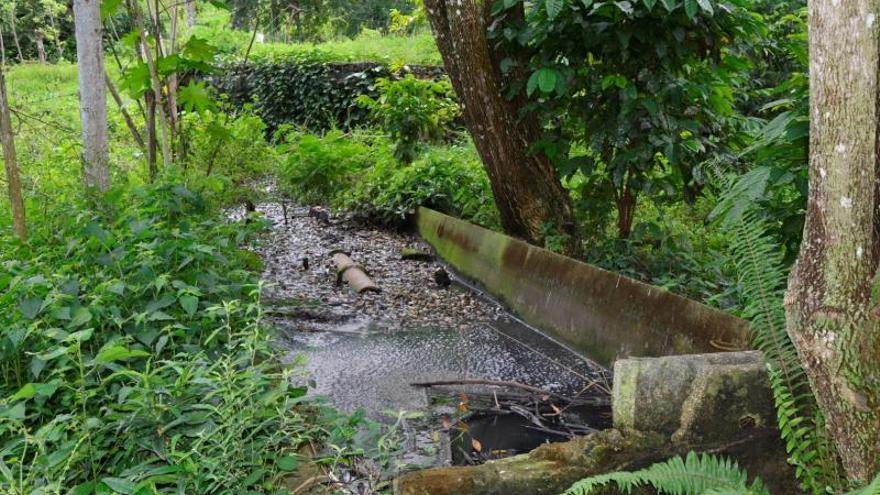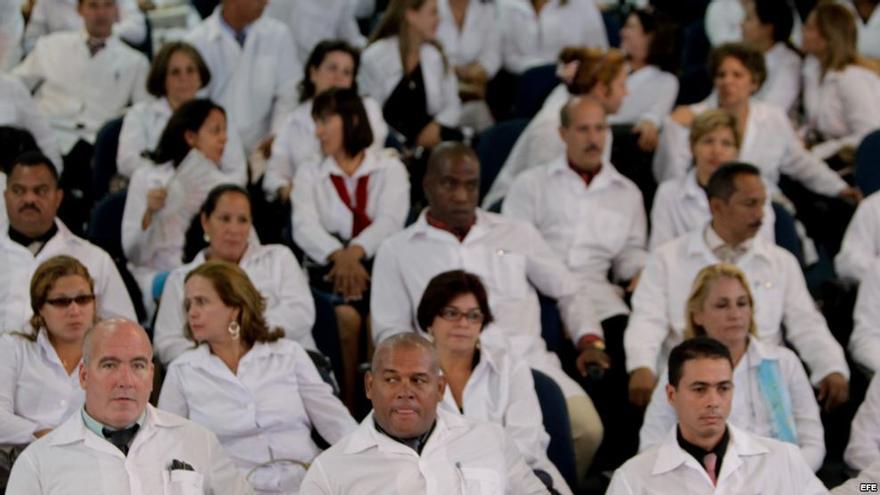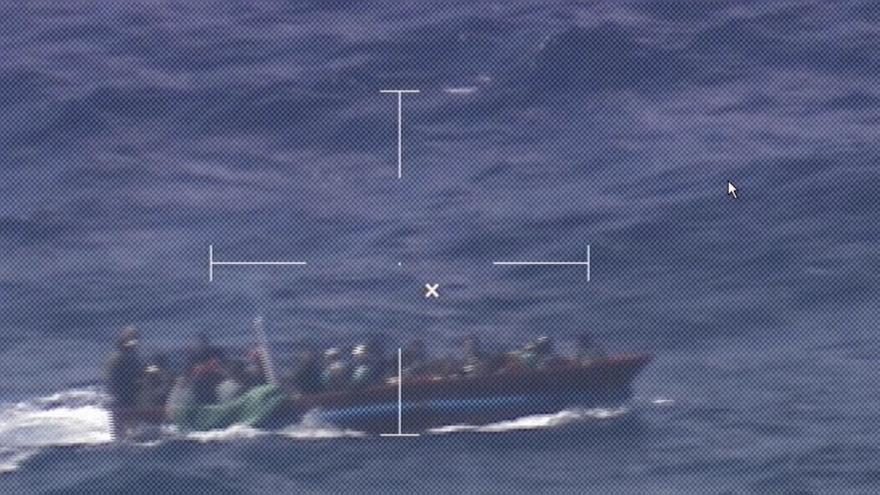
![]() 14ymedio, Reinaldo Escobar, Havana, 22 November 2018 — A head with horns dominates the room. It’s nearly noon and not a single paella has emerged from the kitchen of Toros y Tapas, a paladar (private restaurant) in Havana’s Miramar neighborhood. In the restaurant, a favorite among diplomats, there was a certain expectation, this Wednesday, a few hours before the arrival in Havana of the Spanish President Pedro Sanchez.
14ymedio, Reinaldo Escobar, Havana, 22 November 2018 — A head with horns dominates the room. It’s nearly noon and not a single paella has emerged from the kitchen of Toros y Tapas, a paladar (private restaurant) in Havana’s Miramar neighborhood. In the restaurant, a favorite among diplomats, there was a certain expectation, this Wednesday, a few hours before the arrival in Havana of the Spanish President Pedro Sanchez.
“If Sanchez goes to eat at any private restaurant, it will be here, because many of his compatriots are our customers,” predicts the waiter who serves olives and cold beers as a relief to Havana’s November heat. But other than the official meetings, no one knows anything about the schedule of theSpanish president.
That enigma fuels expectations. From all sides, invisible arms pull at him. The grandchildren, great-grandchildren and great-great-grandchildren of Galicians, Catalans, Basques, Canaris, Valencians and Andalusians seek to grab his attention. Hoping to catch his ear for a sea of requests and questions. He needs a very receptive ear for so many demands. continue reading
The first official visit of this kind in 32 years is not a game. So close in history, culture and language, Spain feels so distant from the Island due to the diplomatic distance between the Moncloa Palace and the Plaza of the Revolution, the limitations imposed on its embassy, and the vagaries of political interests.
What history separates is united by “blood,” as Sandra María Jiménez, 42, describes the “pull of Spanishness,” a link that, every day, leads dozens of girls under the age of 12 to flock to dance classes with their castanets and fans. “Whether you like it or not, this is still the most Spanish country in America,” she says.
However, the years and closer neighbors push in another direction. “Now we eat more hamburgers than churros, Lady Gaga won the fight with flamenco, and stiletto heels are more common than espadrilles,” Jiménez laments. Even at home, photos of the Puerta de Alcalá, in Madrid, alternate with ones of the Brooklyn Bridge, in New York.
In Cuba there has been a long fight of more than a century, and on Thursday Sanchez landed in the middle of it. A confrontation between Spanishness and the influence of the close neighbor of the North. The majority of the vehicles that circulate in the streets emerged from American factories and inside them we see the the stars and stripe flag, not the red and yellow.
Only when soccer is talked about does the former Motherland lead with its goals. Young Cubans are Spanish as soon as the goal unites them and the ball calls them. Rugby and tennis have little success on the Island.
Sanchez is going to put Cuba back on the Spanish map,” says Jiménez, who has not yet been invited to the meeting next Friday afternoon between Pedro Sánchez and the descendants of Spaniards settled on the island. “Those who attend will carry the demands of everyone,” says the dance teacher.
Others are more skeptical.
With a hot custard in hand, Serapio Rodrigues, 85, a descendent of Asturians, rocks in a hammock in the Artemisa village of Alquizar, where his father arrived at the end of the 19th century. In nearly 150 years, the Rodriguez family and saw their fruit empire flourish and die, sending two children to university and seeing all their grandchildren leave for abroad.
“Some live in Spain and others are in the United States but everyone has a Spanish passport,” says the family patriarch, who stayed so as not to abandon the farm and leave “the hens with the neighbors.” Rodriguez, who is Spanish since the Law of Grandchildren gave him the opportunity to acquire that nationality, wants Sanchez “to increase financial aid to retirees.”
With a pension worth less than 15 euros a month, this old militant of the Communist Party has parked his revolutionary medals in a drawer and hopes, like a prodigal son, that the Motherland will receive him with material support. “It does not matter if it comes through the Spanish embassy or through the Church, only that it comes, because the situation is very difficult,” he laments.
Among his priorities there are no luxuries: analgesics, milk powder, a cane (because the former broke going down a staircase), disposable diapers for “the bad days,” as he calls them, some vitamins that serve as a supplement and “a channel of postal mail, fast and direct” with which to communicate with the offspring who live on the other side of the Atlantic.
Rodriguez has his doubts if this visit of Sanchez will help him to overcome “the gap,” as life that takes place under the rigors of the rationed market and a salary in Cuban pesos is called. “The Yumas will be something else, but the Pepes are family,” says the ex-militant to distinguish Americans from Spaniards.
The lack of transparency, a constant in the last half century in Cuba, has also aroused all kinds of rumors before the arrival of Sánchez. In Santiago de Cuba, a refurbishing of the road that goes to the cemetery of Santa Ifigenia, site of the monolith that holds the ashes of Fidel Castro, has been converted into fuel for the fire of speculation.
The leader of the Patriotic Union of Cuba, regime opponent José Daniel Ferrer, suggests, “It’s not possible that a politician who is clamoring to dig up the remains of Francisco Franco in Spain comes here to visit the tomb of another dictator,” although there is no official confirmation of any journey to visit the remains of the deceased.
In the cemetery in Havana, an old gravedigger who boasts of having buried “half the city” speculates, without any signs, that the Spanish Prime Minister will visit the necropolis, where, among other illustrious compatriots, José Martí’s mother is buried; Martí was a hybrid man of both the island and the Spanish peninsula.
“How could he be in Cuba and not visit his dead?” asks the worker, a few yards from the resting place of Máximo Gómez, who fought on the side of Spain in Santo Domingo and against the Spanish army in Cuba.
_____________________
The 14ymedio team is committed to serious journalism that reflects the reality of deep Cuba. Thank you for joining us on this long road. We invite you to continue supporting us, but this time by becoming a member of 14ymedio. Together we can continue to transform journalism in Cuba.

